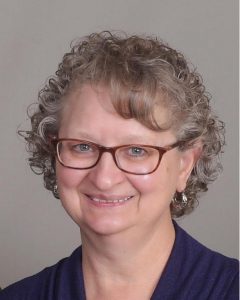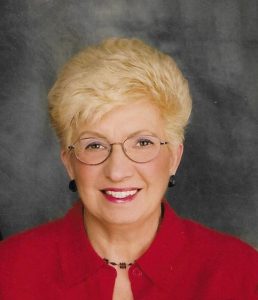
By Laurie Stiegelmeier
Blessed Carlo Acutis used technology to bring God to the mission-field of the internet. In the book “Carlo Acutis, A Millennial in Heaven,” Father Will Conquer wrote that Carlo’s grandmother told him being a missionary is for the priest. Carlo replied, “But, Nonna, the priest does not know how to do all that. And besides, with all that he has to do in the church and the people he has to meet, he does not have the time. So, this mission is for me.”
Mary Jo Gallagher, parishioner at St. John Paul II Parish in Harrisburg, agrees because the laity have access to people and circumstances that our ordained and religious brothers and sisters don’t.
In 1965, Vatican II called for greater involvement of the laity. It is visible in ministries that parishioners participate in, such as greeters, ushers, lectors and extraordinary ministers of Holy Communion. While these are good, there is more to the call for “the apostolate of the laity” that we don’t easily see and must not overlook.

We are called to do the work of the apostles and have, according to the Decree on the Apostolate of the Laity, “a preeminent responsibility to make the divine message of salvation known and accepted by all men throughout the world” (n. 3).
How do we fulfill this responsibility? In an address to seminarians, Father Michael Schmitz (of “The Bible in a Year” fame) states it simply, “Get baptized and start talking!”
Fulfilling our call
Our mission begins with baptism, but it’s important to remember we are strengthened by the Holy Spirit in confirmation and nourished with the Eucharist, helping us grow in our love for God and our fellow man, which is the heart of the apostolate of the laity.
“If we are convinced that Christ and the Church are a treasure in our lives, then we will want others to have that treasure, too,” Mary Jo said. “We are to labor where we are called; we can’t do it all, but we can all do something.”
Flo Hart, a parishioner at St. John de Britto in Britton, has known all her life that we are to evangelize.
“I love the Catholic faith so much that I feel if people aren’t here, they are missing so much,” Flo said. “In our world today, you’ve got to take a chance to talk about God because he’s been taken away from so many, and so many people have never been given a chance to learn.”

de Britto, Britton
Stressing that being active in our faith, having a relationship with Christ, living a life of prayer, and frequenting the sacraments are of first importance, Mary Jo says there are many opportunities to share our faith if we are open and looking.
“It can be as simple as carrying a rosary or wearing a cross and being willing to witness when asked about it,” Mary Jo said. “When approached by someone who is inactive, have a conversation with them, find out what’s going on in their life, build that relationship and pray for the Holy Spirit to lead you. You’ll know when the time is right to invite them back, and always offer to go with them. Pray for them by name that they will hunger and thirst for the Eucharist.”
Use what you have
Today, we have an advantage over the first apostles because, in addition to personal encounters and relationships, we can reach large numbers of people instantly from our homes. We can follow Blessed Carlo’s example and bring God to electronic media.
Flo invites people to Mass, then reminds them with her phone. “I bug people to go to church. I send texts on Saturday saying, ‘It’s Saturday and it’s 5:00 somewhere!’”
“I’m on a quest to learn as much as I can about the Church and religion. I get so excited about everything I learn, and I talk to everyone about it,” Flo continued, adding it is her belief that when we pray, we shouldn’t ask God to do something for us, we should pray for him to show us how to accomplish it.
In addition to prayer, Flo sends information to the many people she has conversations with.
“If I learn that they have questions or if I think they should know about something, I send them a book about it,” she said.
Upon learning that a Baptist didn’t have knowledge of Lent, Flo signed her up for Dynamic Catholic’s “Best Lent Ever” reflections and videos. Now that person contacts Flo to see if she’s signed up for it.
“If I like it, you’re going to get it,” Flo said. “Who knows? Just one little thing you send might spark that fire.”
Propping up vocations
In addition to the important mission of inviting inactive Catholics back and bringing all people into the body of Christ, we can’t overlook the important work of fostering vocations. Mary Jo believes that when young people encounter priests and religious as real people and can build relationships with them, they become more open to discerning a vocation themselves.
She also says it is so important to have a deep respect for the priesthood, diaconate, and religious life. “If we don’t talk highly of these vocations and anyone—especially our youth—hear us talking poorly about priests especially, why would they want to look at that as a vocation?”
Three young people from Mary Jo’s youth program are currently discerning vocations, and several others have, because of the time she invested in building relationships.
“I made myself available for them and their families if they needed someone to talk to,” Mary Jo said. “We had many talks over a Coke, met up for daily Mass and just hung out.”
At the parish level, Mary Jo has seen the Vocations Prayer said before every Mass and a group that met weekly to pray the Rosary for vocations.
“And pray for your parish priest,” she said. “If your parish doesn’t have a Seven Sisters group, try to get one going” (learn more at sevensistersapostolate.org).
Mary Jo suggests talking to young people about vocations to the priesthood and religious life, exposing them to youth camps and retreats before high school, inviting your parish priest for a meal, and letting your kids spend time getting to know him outside a parish setting.
“And above all else, pray. Pray for vocations daily, asking the Holy Spirit if there is someone to pray for particularly,” Mary Jo says.
Our apostolic mission
Before Jesus ascended into heaven, he commanded the apostles to bear witness to him through their lives and preach the good news throughout the world. He promised they would not be alone because he would send his Holy Spirit to guide and strengthen them.
Today that command is for us.
We have received the Holy Spirit and been given gifts to use. Combining the words of Pope St. John Paul II and Father Michael Schmitz, “Be not afraid” and “start talking.” Become the modern-day apostle Jesus commanded you to be and declare, “This mission is mine!”


